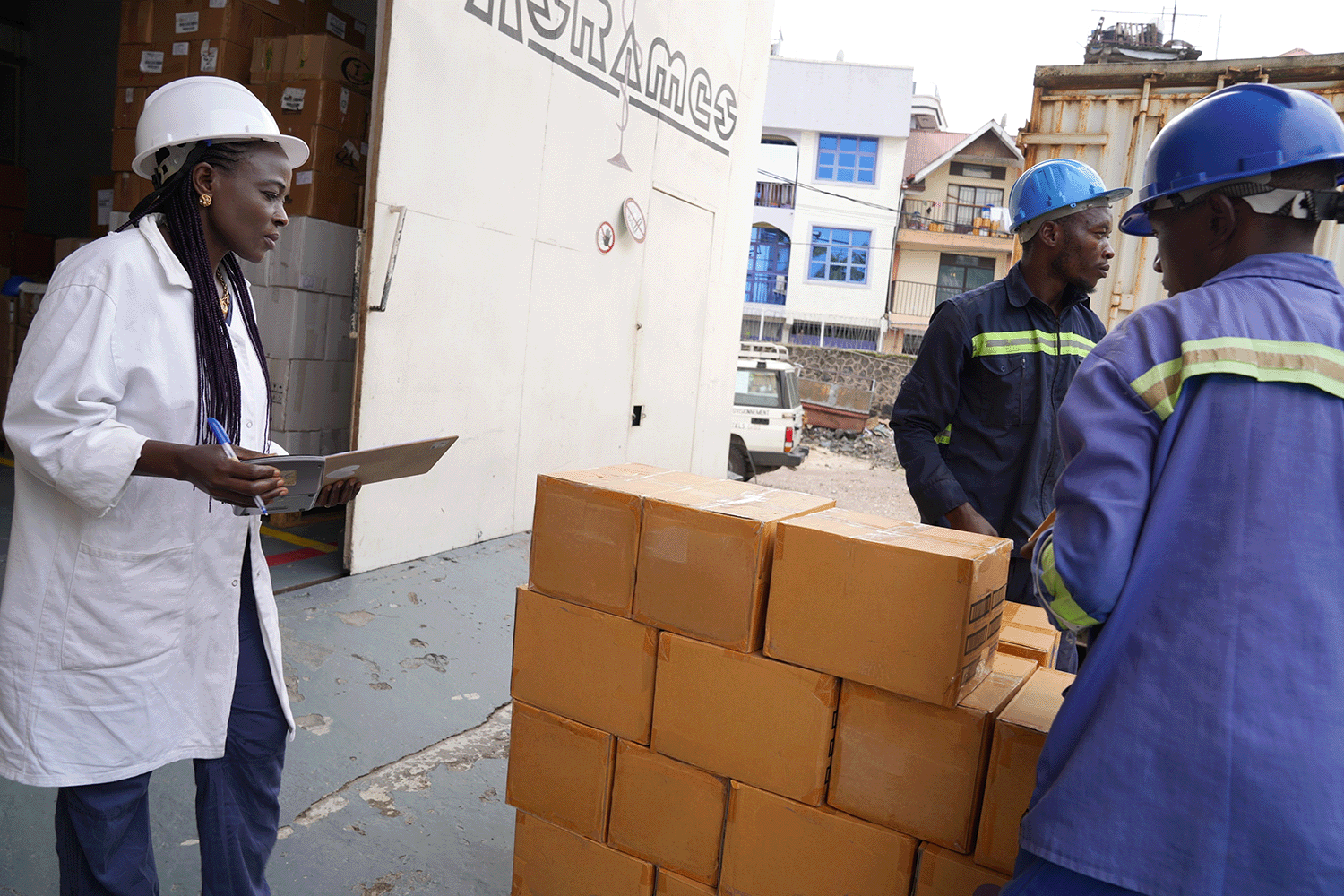Lifesaving HIV and TB Drugs Delivered to Conflict-Hit Eastern DRC Provinces
The delivery comes against the backdrop of a severe humanitarian crisis exacerbated by the resurgence of the M23 rebellion in 2025.

- Country:
- Congo Dem Rep
In a vital step toward restoring essential health services in the Democratic Republic of Congo (DRC), the United Nations Development Programme (UNDP) and the Global Fund to Fight AIDS, Tuberculosis and Malaria (Global Fund) have successfully delivered 23 tonnes of life-saving medication to the war-torn provinces of North Kivu and South Kivu.
This delivery marks a critical milestone in efforts to support health systems and vulnerable populations reeling from the devastating impact of ongoing conflict and displacement in Eastern DRC. The medication shipment, part of the Global Fund’s Grant Cycle 7 (2024–2026), includes antiretroviral therapy (ART), tuberculosis (TB) treatment, and HIV testing kits, all of which are desperately needed after months of stockouts caused by insecurity, looting, and logistical breakdowns.
Restoring Access to Lifesaving Health Services
With this shipment, health facilities across the Kivus can now resume services that were suspended for months. For patients living with HIV and TB—many of whom had no access to treatment since late 2024—this represents a chance to resume lifesaving regimens, prevent transmission, and avert drug resistance or relapse.
“This is more than medicine; it’s a message of solidarity and dignity,” said Damien Mama, UNDP’s Resident Representative in the DRC. “We are not just treating disease; we are restoring hope, trust, and resilience in communities that have suffered for too long.”
Mama noted that this consignment is just the start of a larger strategy. “This is the beginning of a broader effort to stand with the people of Eastern DRC – not just in emergency, but in recovery.”
Unfolding Humanitarian Crisis in Eastern DRC
The delivery comes against the backdrop of a severe humanitarian crisis exacerbated by the resurgence of the M23 rebellion in 2025. Since January, over 4.1 million people have been displaced, more than 7,000 people killed, and over 375,000 children forced out of school.
Basic services have collapsed under the strain: infrastructure is destroyed, banks are shuttered, and sexual and gender-based violence (SGBV) has surged, with more than 60 cases reported daily. Across Eastern DRC, 6.1 million people are in urgent need of recovery assistance.
UNDP’s Comprehensive Crisis Response Plan
This health shipment aligns with the UNDP Crisis Response Plan for Eastern DRC, a USD 25.6 million initiative launched to provide a multi-sectoral, coordinated response to the emergency. The six-month plan focuses on:
-
Restoring basic social services and infrastructure
-
Providing shelter and livelihood support to returnees
-
Supporting survivors of gender-based violence
-
Promoting community reintegration and peaceful coexistence
To date, USD 14.6 million has been secured, leaving a funding gap of USD 11 million. The plan serves as a roadmap for comprehensive recovery and resilience-building, ensuring that emergency aid transitions into long-term, sustainable development.
A Collaborative Approach to Health and Recovery
The Grant Cycle 7 HIV/TB programme, implemented by UNDP in partnership with the Global Fund, is specifically designed to:
-
Reduce HIV infections and AIDS-related deaths
-
Lower TB incidence and mortality
-
Combat stigma and discrimination against people living with HIV and TB
-
Strengthen national and community health systems
This approach also aligns with broader global commitments to Universal Health Coverage (UHC) and the Sustainable Development Goals (SDGs), particularly Goal 3: Good Health and Well-being.
Rebuilding Lives Through Resilience and Equity
UNDP and the Global Fund emphasized the importance of long-term investment in health systems, civil society capacity, and community-led responses. “The people of Eastern DRC have shown incredible strength in the face of unimaginable hardship,” said Mama. “This delivery is a critical first step, but we need sustained support to rebuild systems, protect lives, and restore dignity.”
With committed partners—including national authorities, local NGOs, and international agencies—the path toward a healthier, more stable Eastern DRC is beginning to emerge.
Looking Ahead
While the challenges remain immense, this milestone shipment provides a much-needed boost of hope. Continued collaboration and funding will be key to scaling up interventions, especially in remote areas affected by insecurity and limited infrastructure.
As humanitarian organizations and development actors rally to meet these needs, one thing is clear: no one should be left behind, especially those whose lives are caught in the twin crises of conflict and disease.










